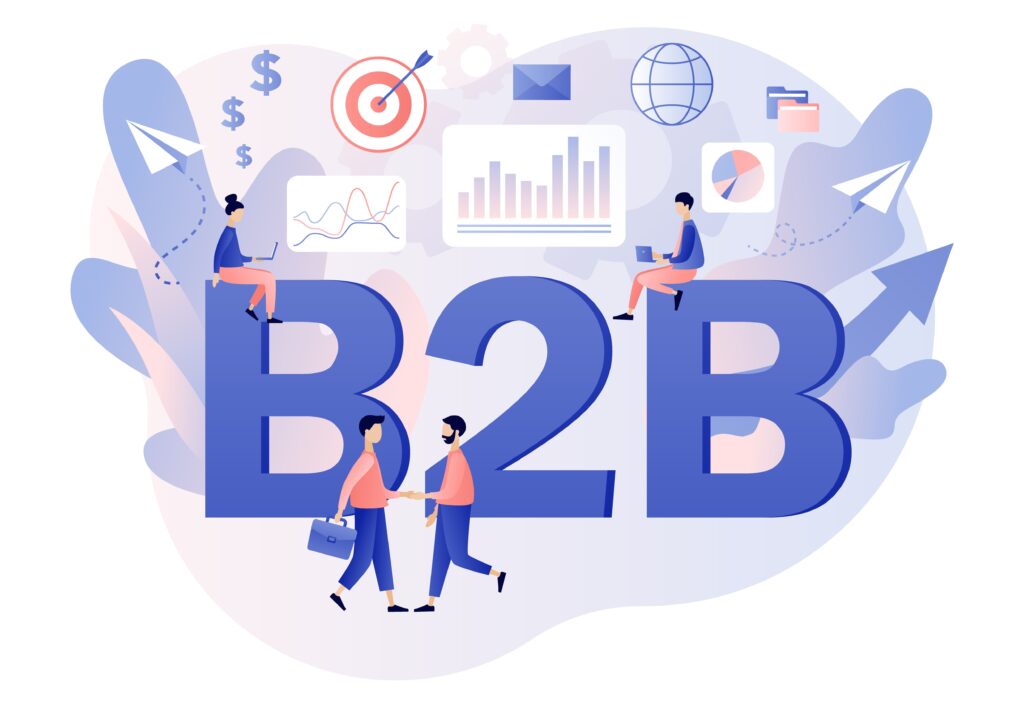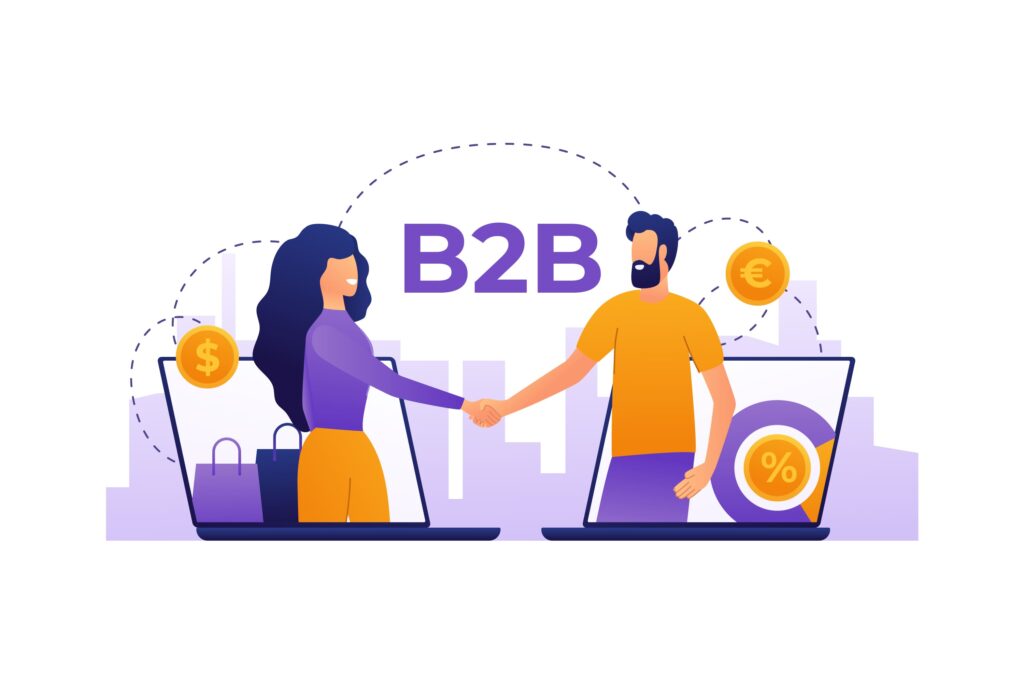B2B (business-to-business) content marketing is an approach that involves the creation, and sharing of valuable and other relevant content to attract, engage, and also retain a specific target audience.
The primary goal of B2B content marketing is to drive profitable customer action, including lead generation, customer acquisition, and customer retention.
In this article, we will explore the different components of B2B content marketing and how businesses can leverage them to achieve their marketing objectives.
Why Is B2B Content Marketing Important?

B2B content marketing is important for several reasons:
1. Builds Brand Awareness And Reputation
B2B content marketing helps businesses establish and strengthen their brand identity and reputation.
By consistently creating and sharing valuable content, businesses can position themselves as industry experts and thought leaders, which can increase their credibility and authority in the eyes of their target audience.
2. Generates Leads And Sales
B2B content marketing can help businesses generate leads and sales by providing valuable information and insights to potential customers.
By creating content that addresses their pain points, challenges, and needs, businesses can attract potential customers and build a relationship with them. Over time, this relationship can lead to sales and revenue for the business.
3. Supports Customer Retention And Loyalty
B2B content marketing can help businesses retain and engage their existing customers by providing them with useful information and insights.
By creating content that educates, entertains, and informs their customers, businesses can deepen their relationship with them and increase their loyalty.
4. Components Of B2B Content Marketing
B2B content marketing involves several components that work together to create a cohesive and effective marketing strategy. These components include:
5. Content Strategy
A B2B content marketing strategy is a plan that outlines how a business will create, publish, and manage its content. It should take into account the business’s marketing objectives, target audience, and the types of content that will be created.
A content strategy should also include a content calendar, which outlines the topics, formats, and channels that will be used to distribute the content.
6. Content Creation
For B2B content marketing content creation is the process of developing and producing the actual content that will be used in the content marketing campaign. This can include blog posts, articles, whitepapers, case studies, videos, infographics, and other types of content.
The content should be relevant, informative, and engaging, and should address the pain points, challenges, and needs of the target audience.
7. Content Distribution
Content distribution is the process of getting the content in front of the target audience. This can include social media, email marketing, influencer outreach, guest posting, and other channels.
The content should be optimized for each channel, and the distribution strategy should be aligned with the business’s marketing objectives.
8. Content Promotion
Content promotion is the process of amplifying the reach of the content by using paid advertising, social media advertising, or other promotional channels.
This can help increase the visibility of the content and drive more traffic to the business’s website or landing pages.
9. Content Measurement
Content measurement is the process of tracking and analyzing the performance of the content marketing campaign. This can include metrics such as website traffic, engagement rates, lead generation, and sales.
The data can be used to refine the content strategy and improve the effectiveness of the marketing campaign over time.
Best Practices For B2B Content Marketing
To get the most out of B2B content marketing, businesses should follow these best practices:
1. Understand Your Target Audience
To create effective content, businesses must first understand their target audience for B2B content marketing conversion. This includes their pain points, challenges, needs, and preferences.
Businesses should use market research, customer surveys, and other tools to gain insights into their target audience and develop buyer personas that represent their ideal customers.
2. Develop A Content Strategy
A B2B content marketing strategy should be developed to guide the content creation and distribution process. The strategy should align with the business’s marketing objectives and be tailored to the target audience’s preferences and needs.
The content should be optimized for each channel and be created in a variety of formats to appeal to different audience segments.
3. Create High-Quality Content
For B2B content marketing, content created should be of high quality, relevant, informative, and engaging to the target audience.
The content should also address the pain points, challenges, and needs of the target audience. The use of visuals such as images, videos, and infographics can make the content more engaging and memorable.
4. Promote Your Content
The content created should be promoted through various channels to maximize its reach and impact. This can include social media, email marketing, influencer outreach, guest posting, and other channels.
Paid advertising can also be used to amplify the reach of the B2B content marketing exposure.
5. Measure Your Results
The performance of the B2B content marketing campaign should be tracked and analyzed to determine its effectiveness.
Metrics such as website traffic, engagement rates, lead generation, and sales should be measured and analyzed to determine the impact of the content on the business’s bottom line.
The data can be used to refine the content strategy and improve the effectiveness of the marketing campaign over time.
6. Nurture Your Leads
The leads generated through the B2B content marketing campaign should be nurtured through email marketing and other channels to convert them into customers.
This involves sending targeted content that addresses their pain points and needs and provides solutions to their challenges.
By nurturing leads, businesses can build a relationship with them and increase their likelihood of becoming customers.
7. Stay Consistent
Consistency is key to a successful B2B content marketing campaign. The content should be published on a regular basis and be of high quality.
The distribution strategy should also be consistent, and the content should be promoted through various channels to maximize its reach and impact.
By staying consistent, businesses can establish themselves as industry experts and thought leaders and build a loyal following of customers and prospects.
Conclusion
B2B content marketing is an effective way for businesses to attract, engage, and retain their target audience.
By creating valuable and relevant content and promoting it through various channels, businesses can position themselves as industry experts and thought leaders, generate leads and sales, and support customer retention and loyalty.
By following the best practices outlined in this article, businesses can create a successful content marketing campaign that delivers measurable results and drives business growth.
Read Also
- 10 Content Marketing Mistakes Which You Should Avoid In 2023
- 9 Content Marketing Trends Which You Are Missing Out In 2023
- Top 8 Content Marketing Platforms Of 2023




